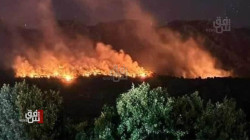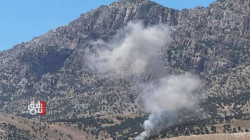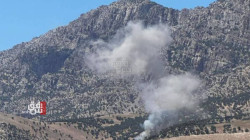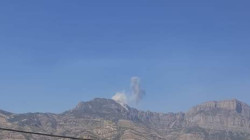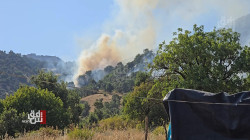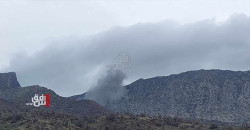Kurdish village caught in crossfire as Turkish-PKK clashes spark massive wildfires
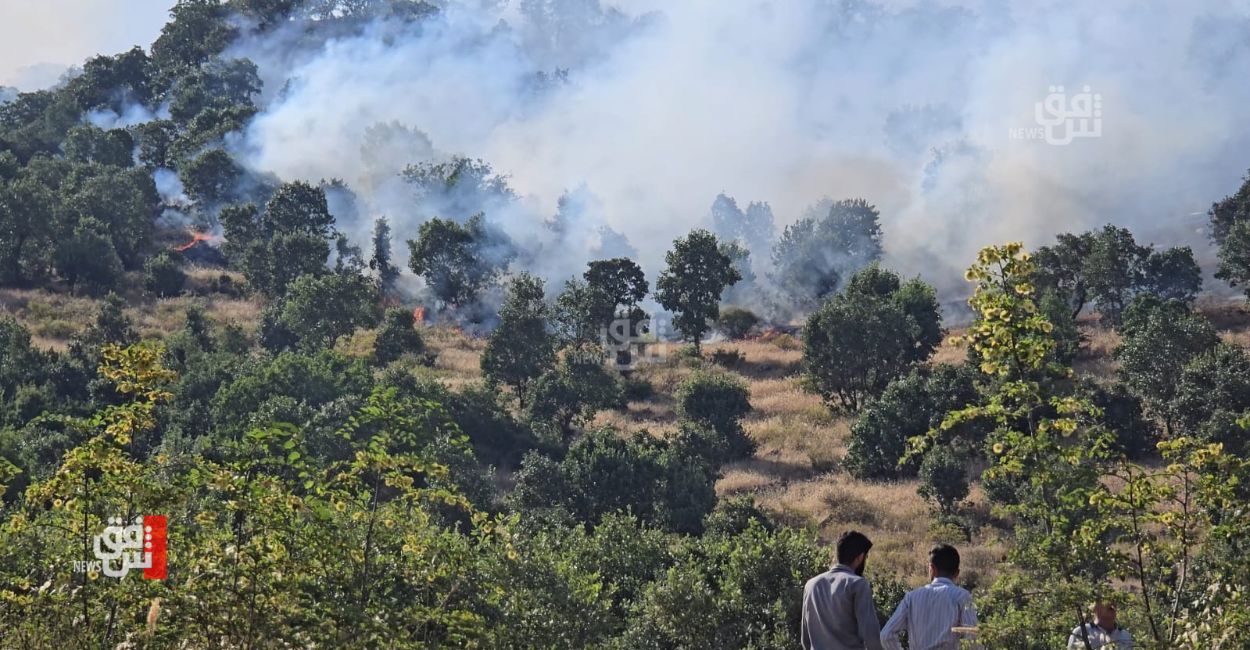
Shafaq News/ Violent clashes between Turkish forces and the Kurdistan Workers' Party (PKK) in Duhok's northern village of Sekiri have ignited huge wildfires, engulfing vast swathes of farmland and threatening the livelihoods of hundreds of villagers.
According to Nizar Mohammed, the mukhtar (village head) of Sekiri village in Duhok Governorate, artillery shelling from the surrounding conflict has triggered multiple fires, destroying hundreds of acres of mature trees and causing widespread panic among residents.
"The shelling has caused fear and terror among the villagers, who are now trapped between two difficult choices: either remain under the crossfire and continue trying to protect their remaining farmland from the the fires, or flee the village and leave everything behind," Mohammed told Shafaq News agency.
Compounding the villagers' plight is the limited access for firefighters to reach the affected areas due to the volatile security situation and the rugged terrain of the territory. The residents have been forced to deploy rudimentary firefighting methods in a desperate attempt to salvage their crops and homes.
"The people of the village are working day and night to extinguish the fires using primitive means," Mohammed explained.
Turkish operations in mountainous northern Iraq, which have been on and off for decades, have been expanded in recent years with soldiers on the ground backed by air strikes, drones and artillery.
In recent weeks, residents in Duhok said that Turkish forces have been patrolling and setting up checkpoints in new areas deep in the Iraqi territory.
Iraq has stepped up pressure on the PKK since a visit by Turkish President Tayyip Erdogan to Baghdad in April.
Late on Wednesday, Iraqi Prime Minister Mohammed Shia al-Sudani chaired a meeting of the Ministerial Council for National Security and discussed "the interventions and violations by Turkish forces in the shared border areas", Iraqi military spokesman Maj Gen Yahya Rasool said.
Ankara sees the presence of the PKK in Iraq as a major national security threat and the group's presence is one of the biggest challenge to relations between Turkiye and Iraq.
Senior officials have vowed to create a "security corridor" up to 40km wide along the Iraqi and Syrian borders – a move, it says, is designed to prevent attacks by the PKK on Turkish soil.
Despite the protests from Baghdad, Ankara's military operations have continued in northern Iraq.
The PKK has been waging an insurgency against Turkiye since 1984, initially seeking an independent Kurdish state before changing its demands to an autonomous Kurdish region within Turkiye. About 40,000 people, many of them civilians, have been killed in the conflict.
The group has training camps and bases in the Iraqi Kurdistan region and is designated a terrorist group by the US and EU.
In March, Baghdad listed the PKK as a "banned organisation", and Ankara has called on the Iraqi government to do more in the fight against the militant group.
During a visit to Iraq in April, Turkish President Recep Tayyip Erdogan spoke of "expectations" of Iraq in the fight against the PKK. Al-Sudani spoke of "bilateral security co-ordination" that would meet the needs of both countries.
However, Iraqi Defence Minister Thabet al-Abbasi in March ruled out joint operations between the two neighbors.
Ankara's operations against PKK fighters in Iraq and Syria have led to casualties not only among the fighters, but also civilians. Operations in Syria have also provoked anger in Washington, which has forces alongside Kurdish armed groups, a legacy from the war on ISIS.
The Iraqi Kurdish region has complicated relations with the PKK because its presence impedes trade relations with Turkiye.
Last week, Iraqi security forces announced the arrest of three suspects linked to PKK, accusing them of sabotage attacks.
